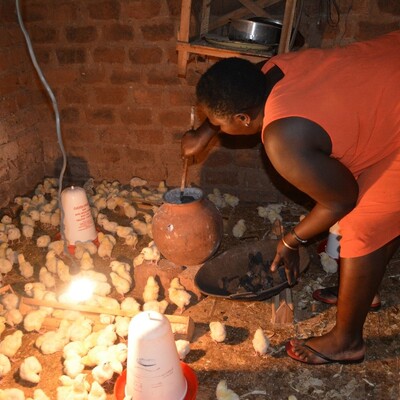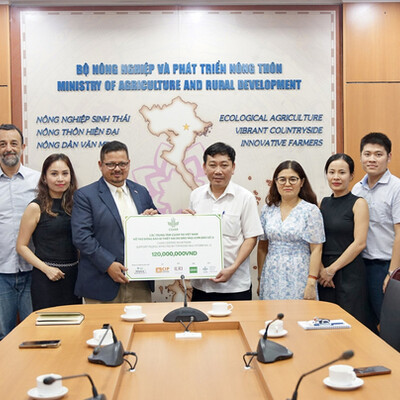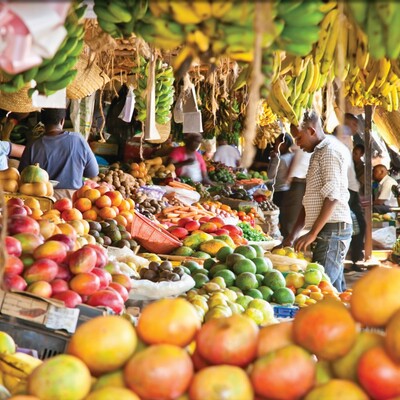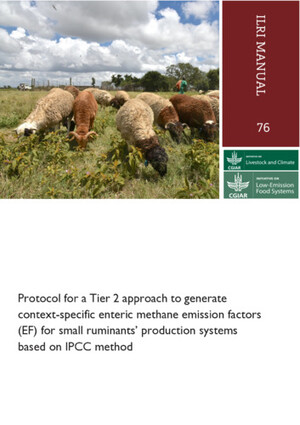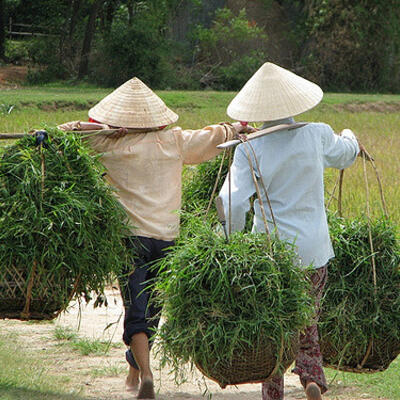
ILRI develops a feed constraint decision making tool, G-FEAST

A workshop in Dehra Dun, India, to develop a tool for feed technology screening and prioritization (photo credit: ILRI/Peter Ballantyne).
Seven years ago, the International Livestock Research Institute (ILRI) and the International Centre for Tropical Agriculture (CIAT) developed a decision-making tool known as the Feed Assessment Tool (FEAST), whose development was funded by the International Fund for Agricultural Development (IFAD) under the Fodder Adoption Project.
Briefly, for those of us unfamiliar with this tool, one of the main constraints to improved productivity for smallholder farmers is feed for livestock. In low- and middle-income countries (LMICs), sustainable livestock production systems depend on the productivity of farm animals and the ability of farmers to access high-quality feed. In LMICs, there is an increasing demand for livestock products which depend on livestock keepers having access to good-quality feed for their livestock.
In order to assess the availability and use of local animal feed resources ILRI scientist, Alan Duncan, and the feed and forage development team at the institute designed a participatory research tool that could facilitate a structured conversation with farmers and other stakeholders to identify solutions and develop action plans to improve livestock feeding. The tool consists of three components, namely, a farmer diagnosis, a quantitative questionnaire and analysis of the data.
The farmer’s assessment component provides an overview of the local farming system, with an emphasis on livestock feed aspects, whereas the questionnaire is designed by scientists to be completed with farmers by a FEAST facilitator. Finally, a process of data analysis is undertaken to help develop interventions. FEAST has been successfully applied in more than 15 countries and 80 FEAST reports are currently in the public domain on the CGIAR digital repository (CGspace), with approximately 1,400 people having downloaded the FEAST application software.
Ben Lukuyu, ILRI’s Uganda country representative and livestock feed scientist, has been leading the roll-out of FEAST with communities for the institution and says, ‘The results coming out of the FEAST exercise provide solutions that farmers can easily adopt for issues related to feed.’
Lukuyu adds, ‘While our national partners have found FEAST useful, they also pointed out that it was ‘gender blind’, i.e., it did not collect the gender disaggregated data that would enable gender analysis or the development of gender-awareness innovations that might enable men and women to improve their productivity, working conditions, and control over assets and incomes. With this in mind, in collaboration with the International Centre for Agricultural Research in the Dry Areas (ICARDA), we have now developed a Gendered Feed Assessment Tool (G-FEAST)’.
Nicoline de Haan, ILRI senior scientist and lead of the ILRI gender team says, ‘As women are also involved in forages but have been overlooked, a gendered version has been developed, G-FEAST, which allows the gender dynamics to come out and provides targeted forage interventions for women.’
G-FEAST will add value to the current FEAST approach and address gender relations in communities where feed interventions need to be implemented. It will improve the design of feed interventions by taking into considering the constraints that households face such as the labour burden of women and their limited access to, and control over, resources. It will also improve the targeting of the feed interventions by considering the problems and solutions for both women and men.
To download the G-FEAST application tool click here: https://www.ilri.org/download-g-feast
For more access to FEAST visit this site: https://www.ilri.org/feast







